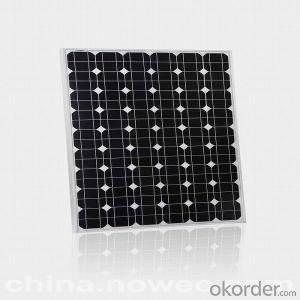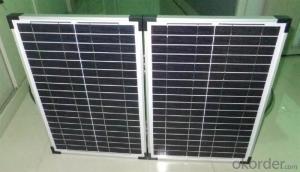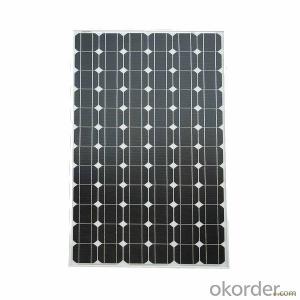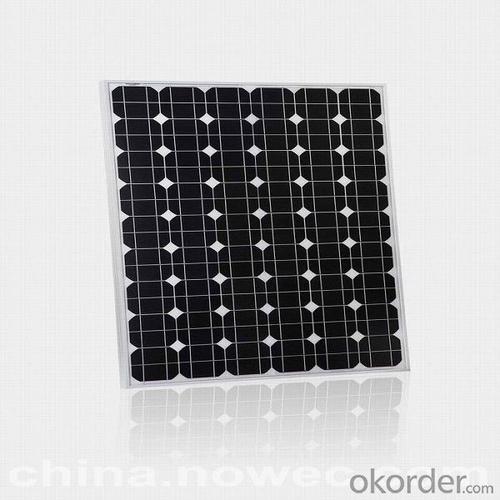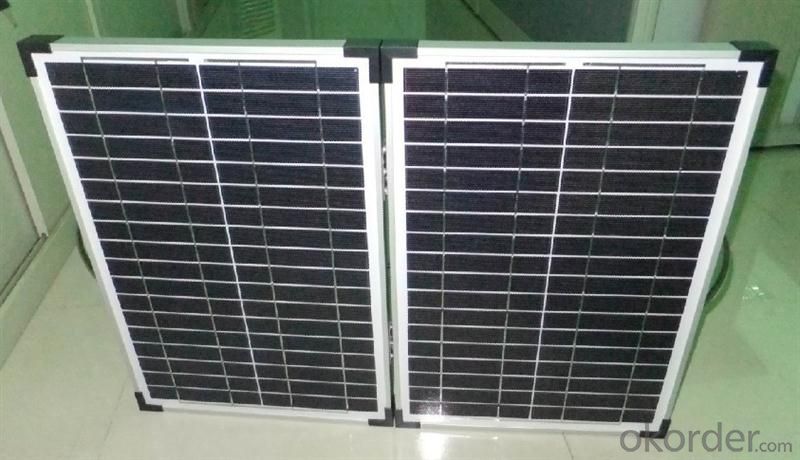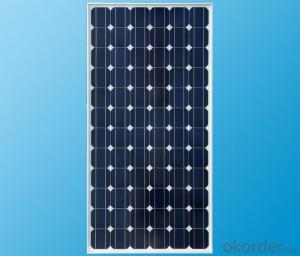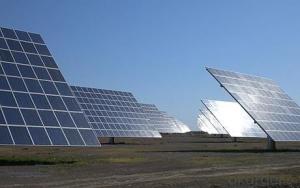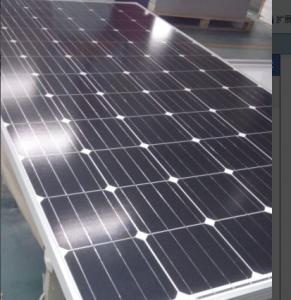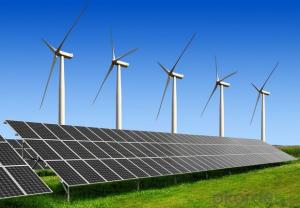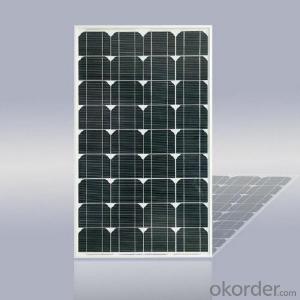Premium Residential Solar Panels with High Efficiency
- Loading Port:
- Tianjin
- Payment Terms:
- TT OR LC
- Min Order Qty:
- 1000 watt
- Supply Capability:
- 10000000 watt/month
OKorder Service Pledge
OKorder Financial Service
You Might Also Like
Specification
Product Description
Key Specifications/Special Features
Mono: single crystal
Maximum power: 10Wp
Maximum power voltage: 18.00V
Maximum power current: 0.28A
Open circuit voltage: 21.60V
Short circuit current: 0.32A
Number of cells: 36 pieces (4 x 9)
Size of cell: 13.89 x 62.5mm
Solar panel dimensions: 150 x 150 x 20mm
Maximum system voltage: 1,000V
Operating temperature range: -40 to 85°C
Surface maximum load capacity (surface can withstand themaximum pressure) 60m/s (200kg/m²)
Allowable hail load (hail stress testing) steel ball fall downfrom 1m height
Weight per piece: 0.8kg
Junction box type: PV-0502 TUV
Connectors and cables type with TUV certificate
Length of cables: 900mm
Output power tolerance: ±3%
Frame (material, corners and more): aluminum
Standard test conditions (STC) 1,000W/m², 1.5AM 25C
Warranty (product quality assurance) 10 years product warrantyand 25 years 80% of power
FF (%) (fill factor): e70%
Loading quantity:
20-foot container: 5,000 pieces
40-foot HQ container: 10,000 pieces



Product Details
| ELECTRICAL CHARACTERISTICS | |
| Maximum power(Wmp) | 5 |
| Maximum power voltage(Vmp) | 17.5 |
| Maximum power current(Imp ) | 0.29 |
| Open circuit voltage(Voc)(V) | 21.8 |
| Short circuit current(Isc ) (A) | 0.3 |
| Weight per piece(kg) | 0.75 |
| Cells types & Size | polycrystal silicon 156*156mm |
| Size of module(mm) | 250*250*18mm |
| Cells per Module (pcs) | |
| NOCT-Nominal operating cell temperature | 47±2 °C |
| Maximum system voltage(VDC ) | 1000 |
| Cell Efficiency(%) | >16 |
| Max. Series Fuse Rating (A) | 15 |
| Temperature coefficients of isc(%) | 0.065±0.015%/ °C |
| Temperature coefficients of Voc(%) | - (2.23±0.1)mv/ °C |
| Temperature coefficients of Pm(%) | - (0.5±0.05)/ °C |
| Temperature coefficients of Im(%) | + 0.1% |
| Temperature coefficients of Vm(%) | - 0.38/ °C |
| Temperature Range | - 40 °C+ 85 °C |
| Tolerance Wattage | ±5% |
| Surface Maximum load Capacity | 30m/s(200kg/sq.m) |
| Allowable Hail Load | steel ball fall down from 1m height |
| Front Glass | 3.2mm tempered |
| Junction Box Type | Black Ip65 |
| Length of Cables(mm) | 90cm |
| Output tolerance(%) | ±3% |
| Frame(Material,Corners,etc) | Anodizde Aluminum Alloy |
| Standard Test Conditions | AM1.5 1000W/m2 25 °C |
| Warranty | 3 years product warranty and 25years 80%of power |
- Q: I need to use solar panels to charge lead acid batteries in an off-grid application. I understand that solar panels have a open circuit maximum voltage and an maximum amperage under no resistance, and that one can optimize the power output by regulating the load (resistance). If so, is just connecting 2 -volt solar panels to a lead-acid battery inefficient? Are there devices that will maximize 2 volt output power (by varying the resistance)? Am I on the right track here? Thanks for any help.
- The answer is actually quite complicated, but if you're planning on building just a very small system, most likely, the panel will be small and weak. In this case, connecting a panel that is 8 volts open circuit directly to a lead-acid battery is probably the most efficient way to charge. There are charge controllers that you can buy, some of which actively track the maximum power point for charging your battery. Unfortunately, those controllers might eat 5 or 0 watts, just to get you another few percent of charging efficiency. If your panel is only 50 watts in the first place, you can see that this is not a good deal. If you're getting serious panels (clue: price $500 each), then you may very well benefit from a charge controller with MPPT (max power point tracking). Lead-acid, either a flooded cell like your car battery, or AGM, are the standard for solar energy storage. Lithium ion is better in many ways, being less sensitive to temperature, state of discharge, and they are also lighter. Charging them is also more straightforward with the right circuitry. The problem is, they cost like $500 per kWh, compared with less than a tenth that price for lead-acid.
- Q: Can solar panels be used for charging outdoor power tools?
- Yes, solar panels can be used for charging outdoor power tools. They can harness sunlight and convert it into electricity, which can then be used to charge the batteries of outdoor power tools. This allows for a sustainable and convenient way to power these tools without relying on traditional electricity sources.
- Q: Are there any free classes to learn about solar energy and building a solar panel
- Energy okorder /
- Q: How do solar panels affect the grid during times of high electricity demand?
- During times of high electricity demand, solar panels can help alleviate pressure on the grid by generating clean and renewable energy. As solar panels produce electricity directly from sunlight, they can contribute to meeting the increased power needs without relying heavily on traditional power plants. This reduces the strain on the grid and helps ensure a stable electricity supply during peak demand periods.
- Q: Can solar panels be installed on airports?
- Yes, solar panels can be installed on airports. In fact, many airports around the world have already adopted solar energy systems to power their operations and reduce their carbon footprint. Solar panels can be installed on the roofs of airport buildings, canopies in parking lots, or even on open land surrounding the airport. They provide a sustainable source of clean energy and contribute to the overall sustainability efforts of the aviation industry.
- Q: I have a home made 24 volt electric cart. It is powered by two 2Volt deep cycle batteries. Since the motor runs on 24 volts the batteries are wired in series to produce the 24 volts. I only have a 2 volt battery charger, but I also have two 2 volt solar panels. It is a pain having to unhook wires, rewire it, or charge them one at the time.HERE IS THE QUESTION REALLY... Can I wire the two 2 volt solar panels together in series (ie: negative to positive) then connect it to the existing 24 volt system and have it charge the batteries fine. I know basic wiring, but I know nearly nothing about solar panels, will it work fine? will it cause them to break? or short out?(additional info, the solar panels are only rated at 5 amps so it will not overcharge the batteries or anything)
- Although I'm not experienced with solar panels, I would say no. if you wire them in series you'll actually be putting voltage through one of the panels. Can't believe this would be good. My suggestion would be to wire one panel to one battery and one panel to the other battery. I really don't believe there's a need to disconnect the batteries from each other. However if you would disconnect the one wire between the two batteries you would be guaranteed safe and I know that would work.
- Q: Can solar panels be installed on a recreational vehicle (RV)?
- Yes, solar panels can be installed on a recreational vehicle (RV). This is a popular option for RV owners who want to generate their own electricity and reduce their reliance on traditional power sources while on the road. Solar panels can be mounted on the roof of an RV and connected to the onboard battery system to provide power for various appliances and devices.
- Q: Can solar panels be installed on metal roofs?
- Yes, solar panels can be installed on metal roofs. In fact, metal roofs are considered to be one of the best types of roofs for solar panel installation due to their durability, longevity, and ease of installation. The metal roof provides a stable and secure base for mounting the panels, ensuring optimal energy production. Additionally, the smooth surface of metal roofs allows for efficient panel placement, maximizing sunlight absorption.
- Q: I need a 2v (500-800ma) solar panel that in can fit on a 24inx4in flat surface. Where can i get one this size and with this power?
- Here's okorder /
- Q: I want to install solar panels in my roof and most installers don't recommend any particular brand. Do you have experience with any particular brand that has worked for you or anybody you know? Does the brand of the panel make a difference?
- I didn't research this. I do know that you must install them on the side or area of the roof that receives the most Sun all day. You can get information at stores like Lowes or HomeDepot.
Send your message to us
Premium Residential Solar Panels with High Efficiency
- Loading Port:
- Tianjin
- Payment Terms:
- TT OR LC
- Min Order Qty:
- 1000 watt
- Supply Capability:
- 10000000 watt/month
OKorder Service Pledge
OKorder Financial Service
Similar products
Hot products
Hot Searches
Related keywords
